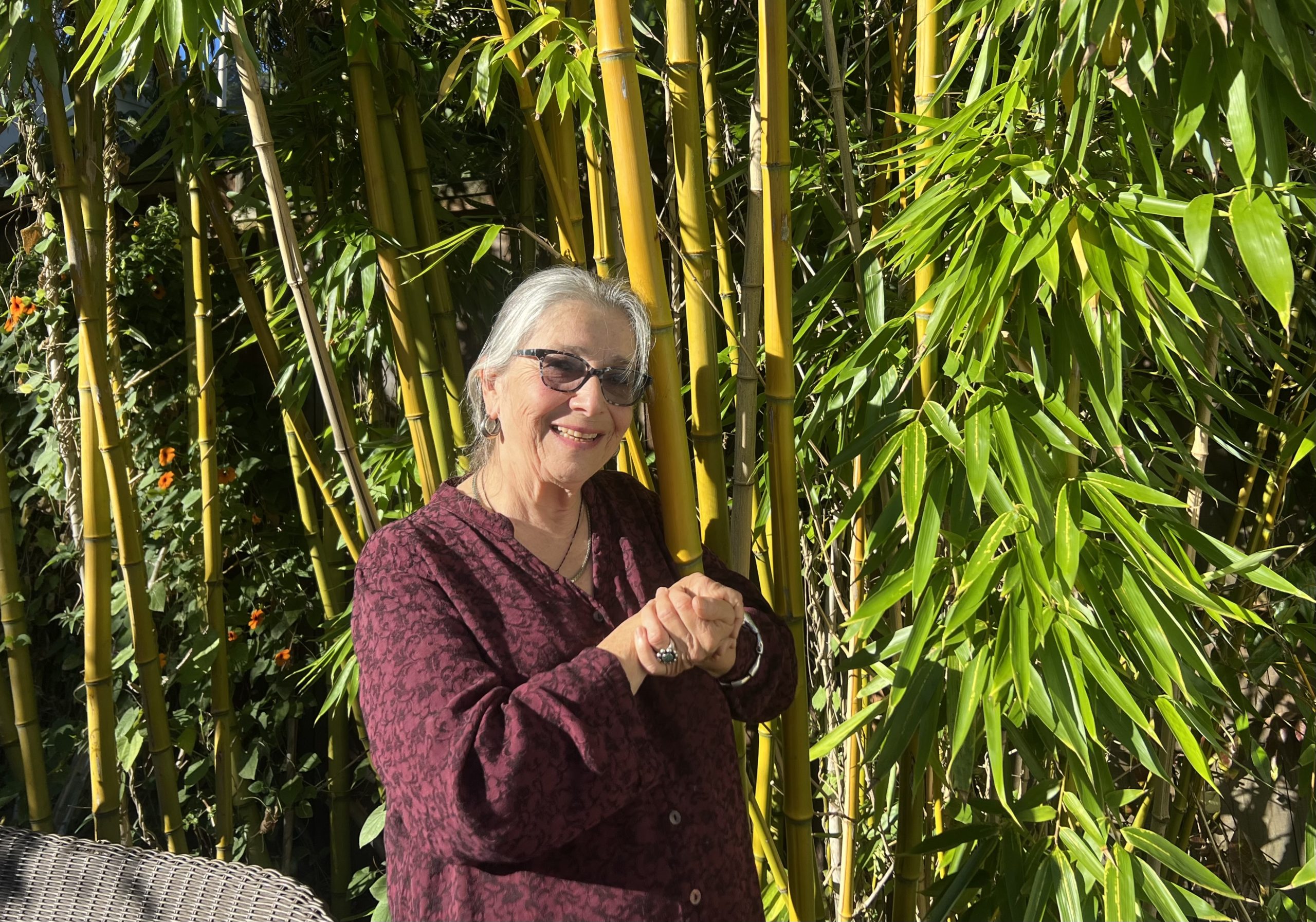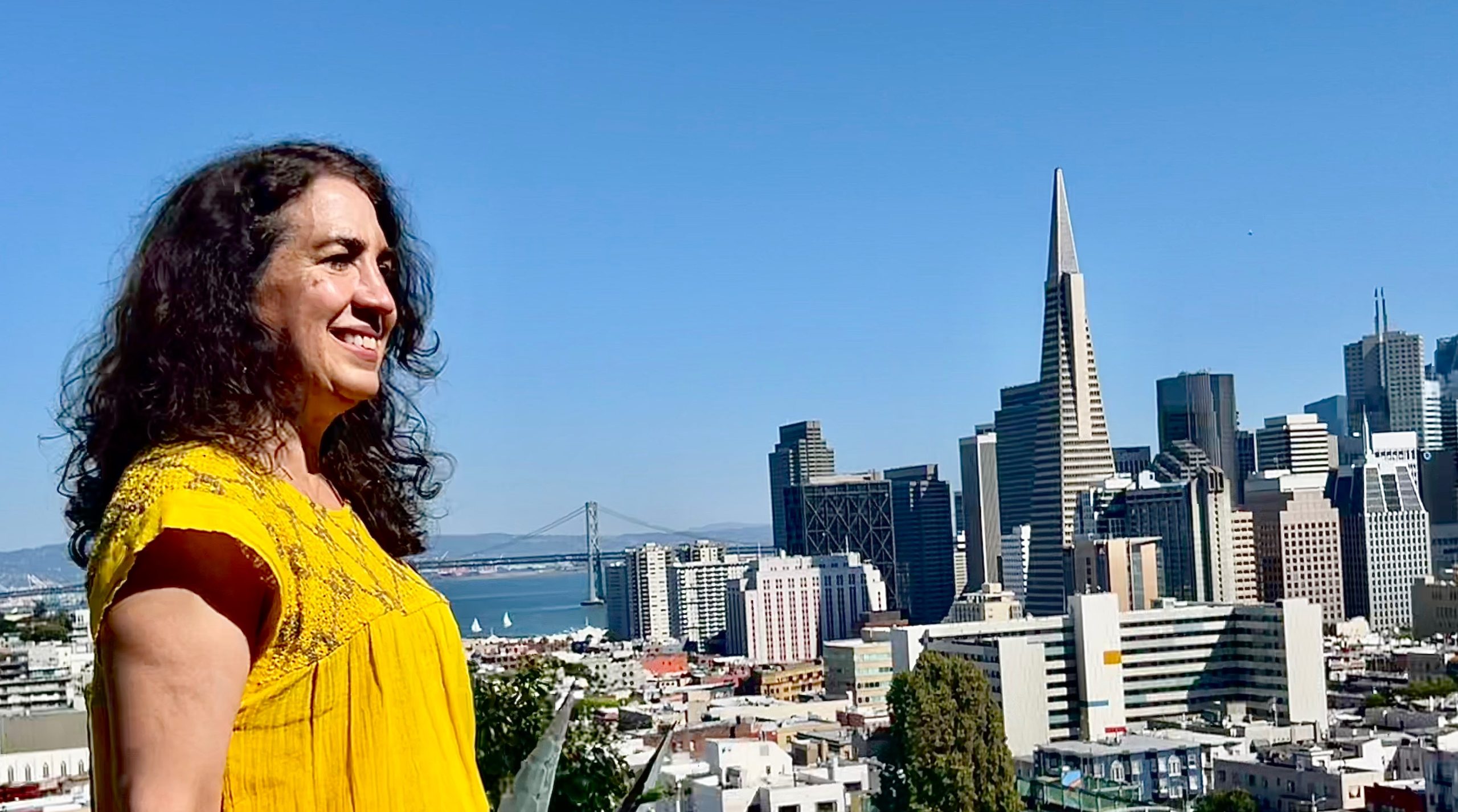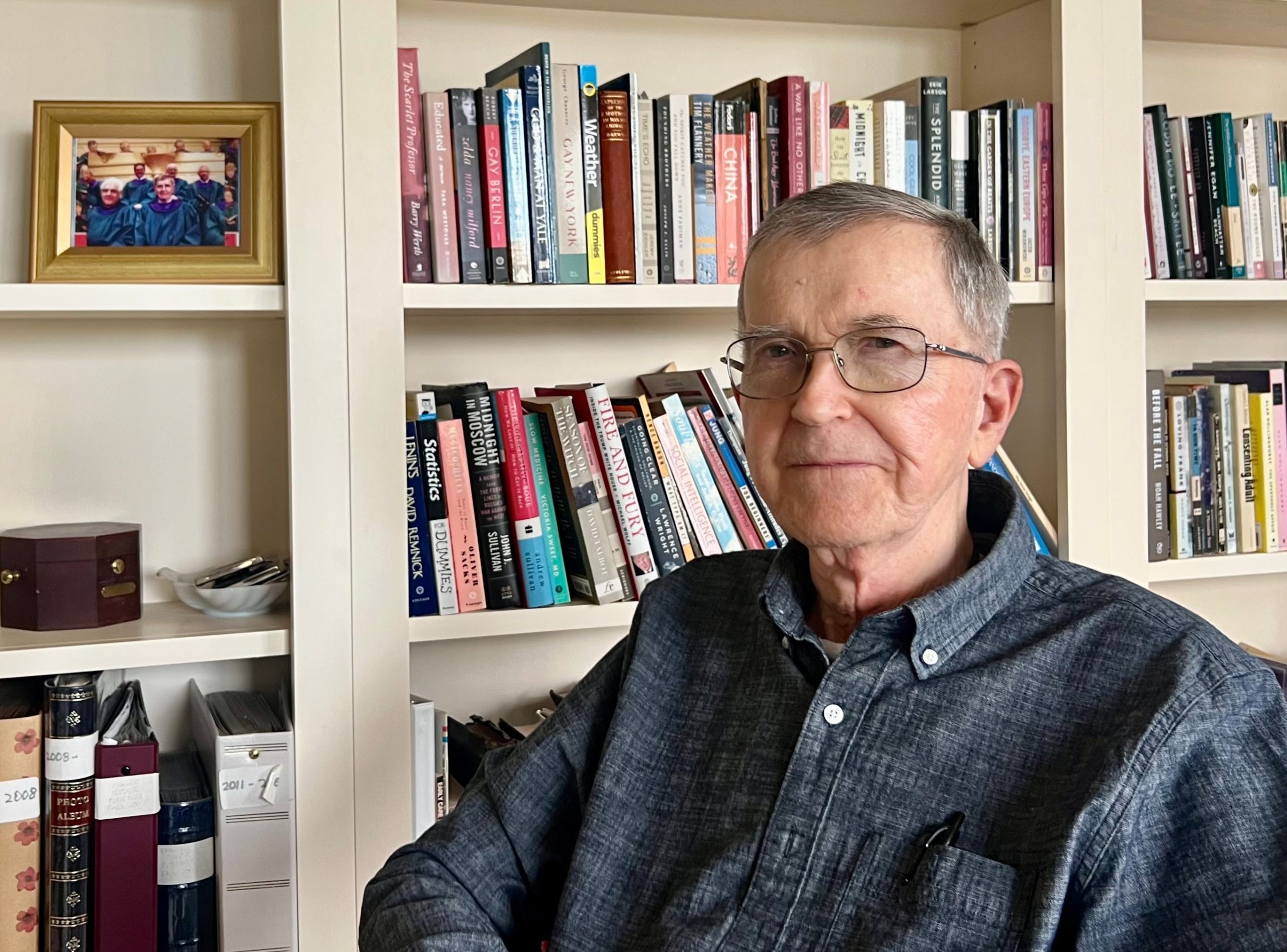For teacher and author whose parents fled both Nazis and Russians during WWII, history is in his blood
An anxious call from Henry Michalski’s mother, Felicia, beckoned him into a world of writing, publishing, book tours and promotion – things he knew little about.

“She wanted me to write her story and speak to not only the witnesses of the Holocaust but all who came after,” he said. “Apart from my two brothers, she designated me as the family historian.
His parents and his mother’s brother survived, but, she told him, no one would believe what they went through, and the world needed to know.
Felicia and Joseph, Polish citizens, met in 1938, just a year before their country was invaded, by Nazis from the west and Russian troops from the east. Germany and the Soviet Union had made a pact to split Poland.
Felicia and her brother fled Poland on foot but were arrested trying to enter Russia. They were released, arrested again and separated. Felicia, as were masses of Polish citizens, Christians and Jews, was exiled to a slave labor camp in Siberia. Joseph, a Polish soldier, was arrested but later escaped a Russian POW camp.
More than the satisfaction of fulfilling a parent’s wishes and completing a challenging task, Michalski’s first book, “Torn Lilacs: A True World War II Story of Love, Defiance and Hope,” gave him a new mission: Making sure that one of the world’s most cataclysmic periods is not forgotten.
Countering antisemitism
“Combating antisemitism, which never goes away, has become my life’s work,” said Michalski, who self-published his book in 2020.
Publication brought invitations to speak, last April at the Lawrence Livermore National Laboratory at a Yom HaShoah, Holocaust Remembrance Day, commemoration; and this October, at the Simon Wiesenthal Center in Los Angeles, also called the “International Center for Holocaust Remembrance.”
His book is now required reading in a Sonoma State University course on the history of antisemitism.
He was 31 when he embarked on the task his mother had given him. He visited her up to her death in 2019 to record her tale, while researching and tracing the trail of horrors his parents had undergone.His father, who died in 1998, also contributed.
“In the beginning, I worked only on a typewriter with carbon paper, paper flying around everywhere, and then there was an editor and several versions of the story,” he said. “I read the great authors like Pat Conroy, Malamud, and Steinbeck and many others; that was my inspiration.”
Writing and researching the book, he said, subtly prepared him for a life of teaching history, as well as a fascination with news and politics. At a young age, he developed a passion for collecting political pins. He taught history and other classes for 36 years in the Napa Valley Unified School District. He ran weekly seminars at various senior centers, covered political conventions for local newspapers and moderated local TV and radio news programs.
Family focus on news
“Other families would say when the news came on the TV or radio, ‘Turn off the news; lets’ hear some music,’ ” he said. “In our house, it was the opposite: ‘Turn on the news; we want to hear it, especially at election time, asking each other `Is this good for the Jews?’ ”
Michalski is now 78. It took him about 40 years to piece together the chronology of his parents’ ordeal under Russian and Nazi assaults: grueling labor, death-defying illness, near starvation, displacement and eventually, a reprieve to love again.
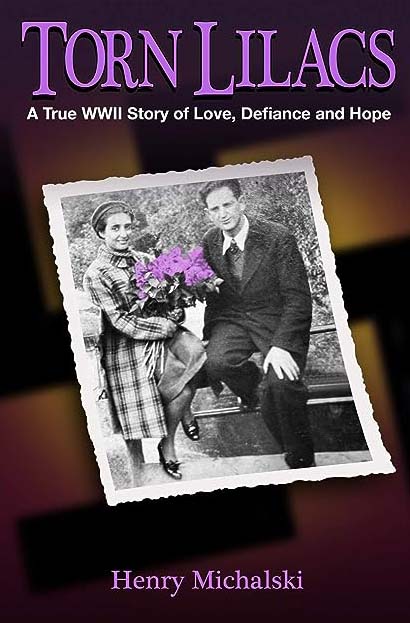
As the war wound down, both were released but stranded, unaware of the other’s location. Joseph eventually tracked Felicia down in Siberia. In the Displaced Persons camp in Germany where they landed, they learned of the deaths of their entire Polish families.
They moved for a while to Kazakhstan, a Russian republic where they heard many Jews were going. Michalski was born there in 1945, three years after they married. Another brother came after. But the family was in a quandary about where and how they would live, how they would make a living. It seemed not one country wanted them.
Luckily, they were selected to be among the 200,000 immigrants allowed into the United States. In 1950, the couple and their two sons made their home in San Francisco’s Richmond district. A third boy was born in San Francisco.
After graduating from San Francisco State with a degree in history, Michalski moved to the North Bay in 1968 to work for the Napa Valley Unified School District, teaching history as well as English, economics, and criminal justice to juniors and seniors.
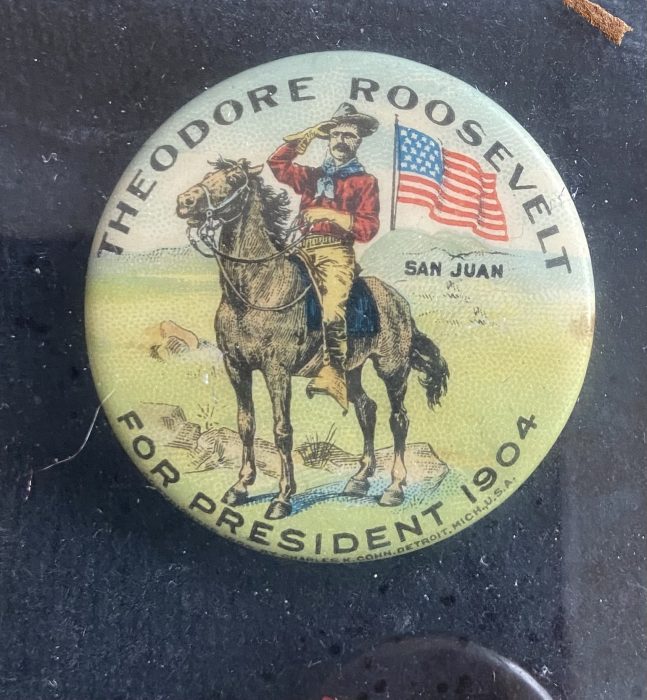
Hoopla and flag waving
“Teaching jobs at this time were scarce,” he said. But Michalski had a leg up. “My button collection is what got me in. Over the years, I had amassed all authentic buttons, dating back as far as Abraham Lincoln, including Eisenhower, Rockefeller, Dewey, Kennedy and many others. After I talked about my collection, he pointed at me and said, `I want you.’ “
“I became hooked into politics with a keen eye on all the fanfare — the hoopla, flag waving, parades and partying got me into collecting and working on campaigns,” he said. “Each convention had barrels of buttons and anyone could take as many as they wanted.”
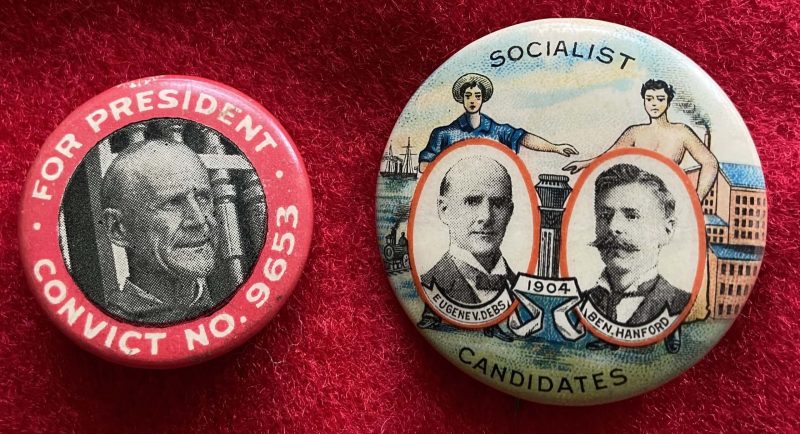
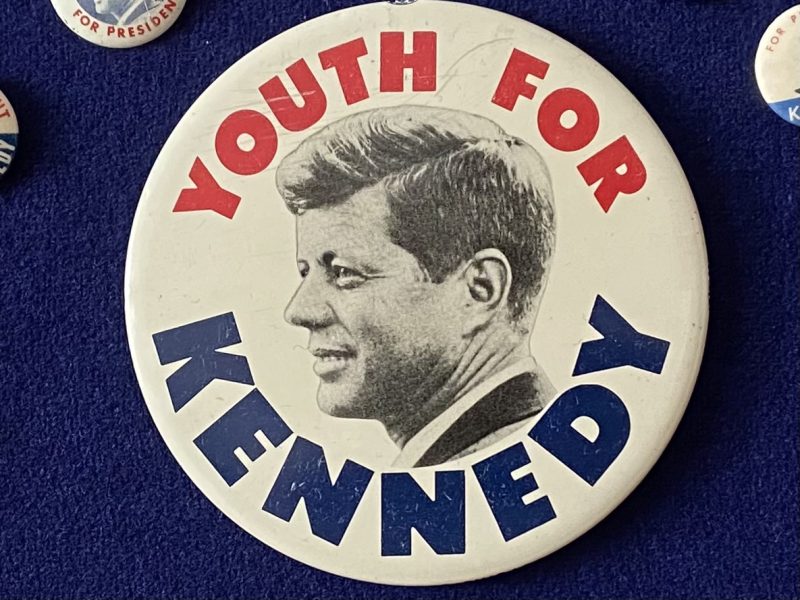
He was initiated into collecting at age 11 when his brother, Jerry, took him to the Cow Palace for the 1956 Republican National Convention. “Eisenhower was being nominated for his second run,” he said.
By 1960, he was working on the Kennedy campaign, stuffing envelopes, answering phones, posting banners. “I loved every bit of it. In 1964, I became a member of the American Political Items Collectors.”
He subsequently went to 12 conventions – on his own dime but with a press pass from the Napa Valley Register and Napa Sentinel, for whom he wrote on a freelance basis. “My stories got headlines and the front page every time,” he boasted.
He also moderated the local access TV (channel 45/Napa) programs “Youth Wants to Know,” and “Napa Newsmakers,” and moderated a radio slot on KVON in Napa. In 1988, he was honored as “Democrat of the Year” by the Napa County Democratic Caucus.
His teaching career ended in 2004. “I loved it, every minute of it, could not wait to get to class each day,” he said, but “I was given the `golden handshake’, and told it was time to retire. At my pay scale, they could hire three of me.”
In retirement, he’s had more time with his son, daughter and three grandsons. He and his wife are separated.
History is personal

But he’s kept his hand in news and politics. For about 10 years, he facilitated weekly seminars at senior centers in Napa, Yountville, and St. Helena, where they talked about local, state and federal politics and issues related to the North Bay.
He’s been living in San Francisco for the last four years – gardening and painting at his home in Sutro Heights, a few blocks from Lands End – and hopes to start this type of gathering here. “I’m putting in my bid with a local nonprofit to get on their activities schedule.”
Group discussion as a way of learning and teaching is something Michalski started with his students. He thinks that may be what garnered him “Teacher of the Year” in 1997.
“Every Friday we would have news circles’ in which I and the students would arrive with newspaper articles and a rousing discussion would ensue.”
Lectures hadn’t engaged them. “I found their eyes glazing over. As Stalin said,`The death of one is a tragedy; the death of six million is a statistic.’ “
His parents’ history became an example.
“So, I started telling the story of two ordinary people, not generals or diplomats, and the turmoil they went through — just to stay alive; they were hunted like animals. And this worked in getting their attention and ultimately teaching World War II in a very personal way.”


